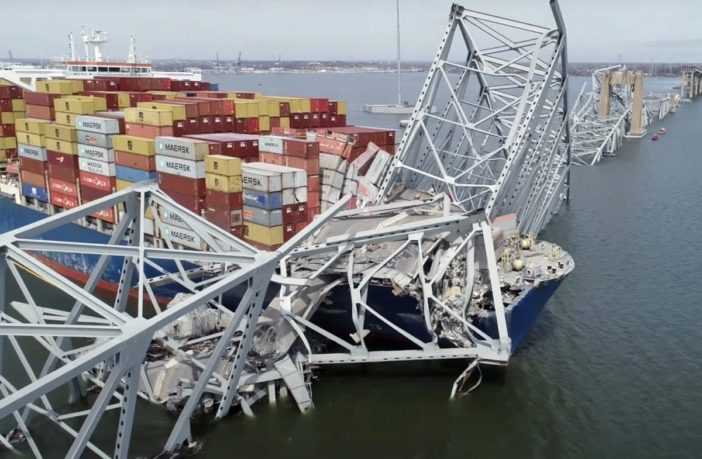By Megan Sayles
AFRO Business Reporter
As damage from the collapse of the Francis Scott Key Bridge is assessed, leaders are now questioning the incident’s implications for Maryland’s economy.
“Locally, and even internationally, people are getting a real-time lesson on the importance of the Baltimore Port,” said Mark Anthony Thomas, president and CEO of the Greater Baltimore Committee (GBC). “When we saw the accident, initially, we did not assume the port would be shut down indefinitely. Now, we are learning that it will have a longer impact on our economy. We just don’t know how dramatic that will be.”
The Port of Baltimore contributes nearly $3.3 billion in total personal income to the local economy and generates more than $395 million in taxes and $2.6 billion in business income. It supports more than 15,000 direct jobs and over 139,000 related jobs. Nearly 1,800 ships visit the marina each year.
Nationally, the Port of Baltimore ranks number one for automobile shipments. In the face of the recent catastrophe, vessel traffic will be suspended until further notice. Thomas said there is an immediate need to restore the port’s operations.
“It serves as a major thoroughfare for cars,” said Thomas. “Any part of the United State’s supply chain that’s disrupted creates a ripple effect in other areas.”
Drivers are urged to use I-95 and I-895 tunnels as alternative routes to the Key Bridge. As a reminder, MDTA officials are imploring drivers to remember that vehicles transporting hazardous materials are prohibited in tunnels. According to the MDTA, those drivers “should use the western section of I-695 around tunnels. This includes vehicles carrying bottled propane gas in excess of 10 pounds per container (maximum of 10 containers), bulk gasoline, explosives significant amounts of radioactive materials.”
The Francis Scott Key Bridge opened in 1977, according to information released by MDTA, and was “the third longest continuous truss bridge in the world. With the main span stretching 1,200 feet.”



